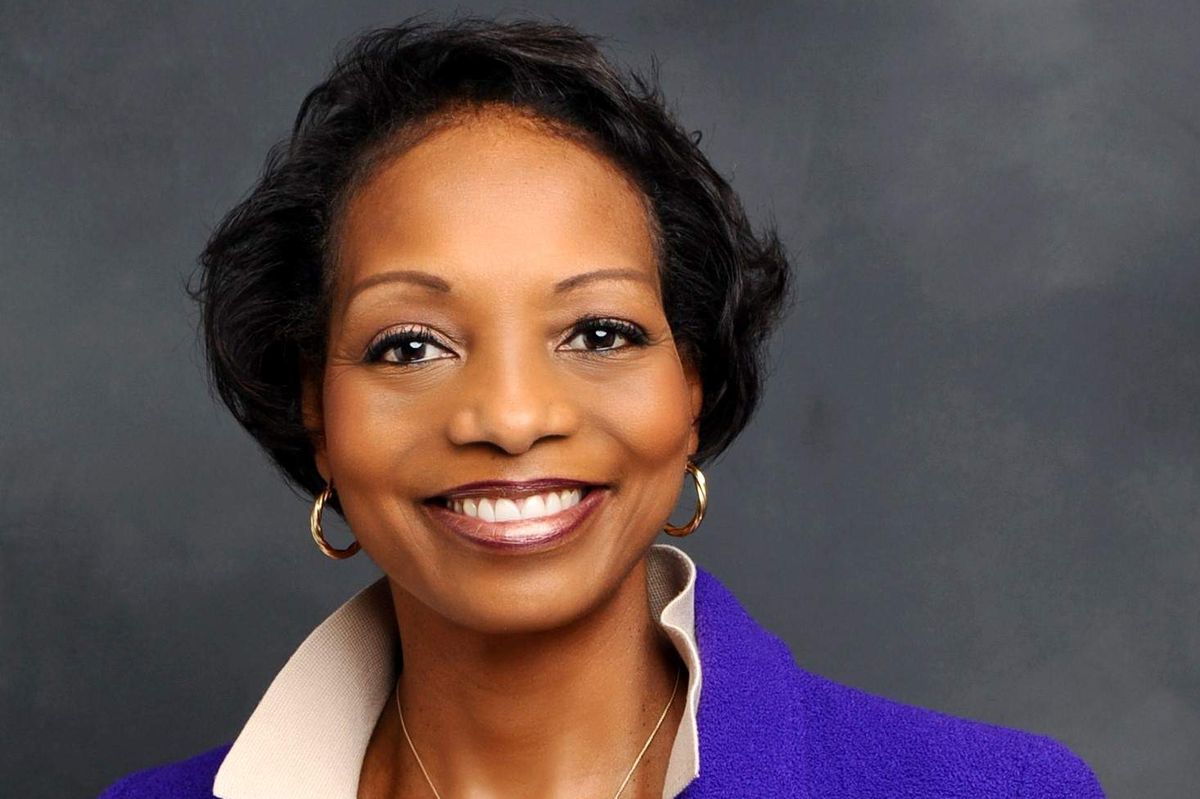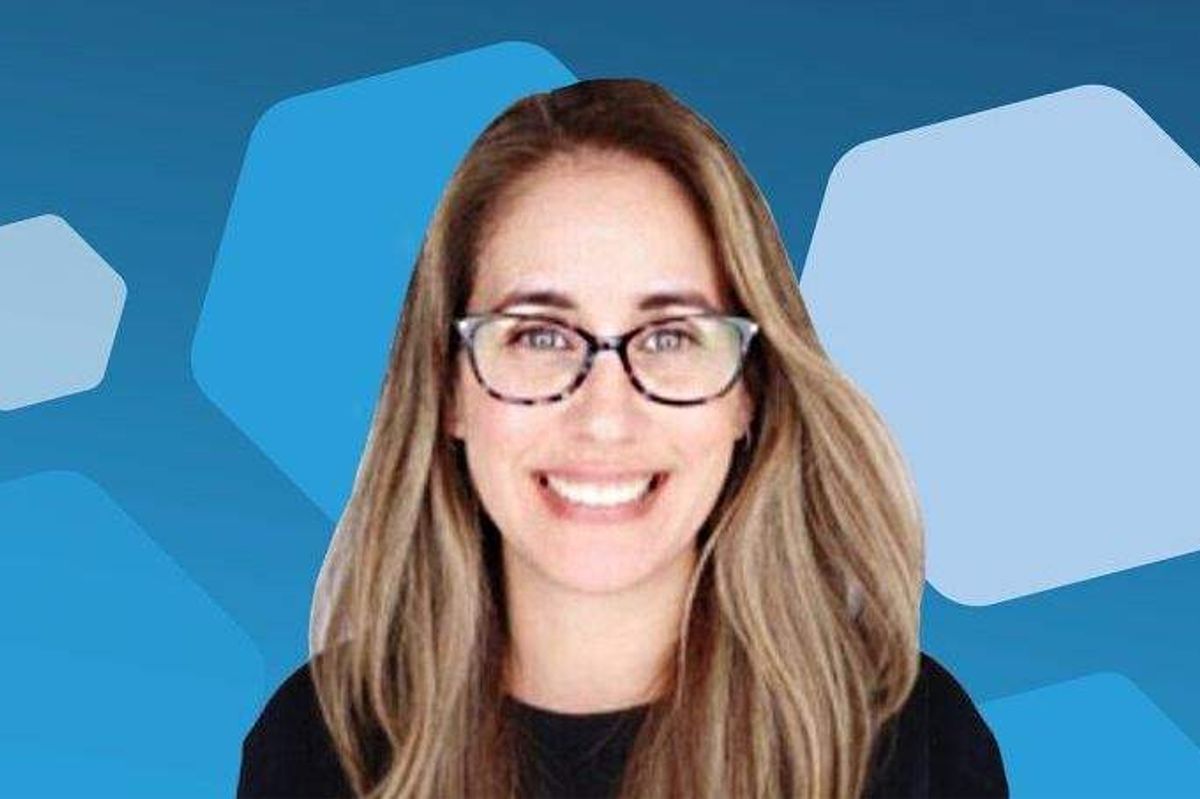Generally, when children are under the age of five, educators believe that they are best suited for and interested in learning, because those are the years in which there is the strongest opportunity to build a broad and solid foundation for lifelong literacy and well-being.
That sentiment is deeply held by Collaborative for Children, the Houston-based nonprofit organization with the mission to meaningfully improve the quality of early childhood education and provide access to cutting-edge technology through its Centers of Excellence to all children, especially those in low-income and marginalized communities.
“The reason the organization was started about 40 years ago is that a group of philanthropists in the greater Houston area suggested that this was so important because 90 percent of the brain develops or grows in the time frame between ages zero to five years of age,” Melanie Johnson, president and CEO of Collaborative for Children, tells InnovationMap.
“And if we were losing children and not preparing them by third grade to be literate, and then subsequently losing them after that for high dropout rates and achievement gaps between poor and affluent children, that this would be the perfect place to start," she continues. "And so, they put the collaborative, the emphasis, and finances collaborative of every, most every early education effort around this region.”
Collaborative for Children’s work in the community is centered around making sure that there is educational equity for all children, regardless of financial status, and providing access to technologies in meaningful ways.
“Ultimately, we want to bridge the digital divide early on so that when children start off their academic journey, they're starting off equipped with the skills to be successful there on,” says Johnson.
Most recently, the institution has focused on utilizing social-emotional learning robots and coding tech toys like the Pepper — the world’s first social humanoid robot able to recognize faces and basic human emotions — and NAO, which resembles human being and stimulates, robots to enhance learning in the classrooms of its Centers of Excellence.
“Technology enhances the learning experience in the Centers of Excellence in ways that a teacher might not be able to,” says Johnson. “Artificial intelligence is used in gamification to allow a child to play and learn while playing.”
For Collaborative for Children, gamification involves transforming typical academic components into gaming themes.
“While playing, the AI gauges the level of skills that they’ve been able to enter into that system and respond with even more challenging tasks or tasks that are still lateral so that they can continue to repeat that skill,” says Johnson.
The socio-emotional learning robots are indeed fascinating, but how does the nonprofit reach these children, and their parents, who might be skeptical of technology?
Ultimately, through the teachers. They draw them in via the technology. If teachers are excited, they act as a conductor of that energy to their students, making their innovative lessons well, electric.
That resonates with most all children, but especially with those diagnosed with autism.
“Robotics like NAO are great for children on the autism spectrum because they are emotionally sensitive and emotionally intelligent,” says Johnson. “They are low sensory, so as NAO runs around the classroom, it can literally have individual and unique conversations with each child based on facial recognition. But most importantly for me, is that this particular robot is able to evaluate children without statistical bias that a teacher might have.
“A teacher might think that because a child confuses the letter D and B, which are basically shaped the same in opposite directions, that they're not learning," she continues. "And the robot will have no prior knowledge in terms of, is this child the better child, or have they been learning throughout the year? The answers are accurate or inaccurate. So, they remove statistical bias when assessing children in the classroom.”
The misconception about teaching technologies is that it’s about screen time. According to Johnson, it’s not. It’s more about interacting with technology.
“We’ve added, you know, all kinds of modern-day technology so that this world that we're preparing these children for 80 percent of the jobs we don't even know will exist when they are adults,” says Johnson. “So, we're just trying to make sure that there is no divide in terms of 21st century skills and 21st century preparation.”
Building Blocks Ep. 12youtu.be
Collaborative for Children has so many facets to assist children with their early development, but there are inherent challenges when attempting to reach their target audience in low-income and marginalized communities that the organization counters with programs like the Collab Lab, which is a mobile classroom that brings critical, future-focused early childhood education directly to the community at no cost.
Designed to be convenient for families, Collab Lab connects parents and their youngest children with experts, educators, resources, and proven programs whose goal is to make sure that kids have the skills essential to learning from the moment they walk into kindergarten for the first time.
“There are a myriad of challenges in these communities that we serve, specifically with technology,” says Johnson. “When children enter first grade, and especially second grade, they're given notepads, basically, digital notepads, because it's no good in pre-K oftentimes, but it is very helpful for children who will never have access or have limited access to iPads and things of that nature.
“So while we don't want them to be babysat by screen time and have social media impacting their self-image and self-worth, we definitely want them to have appropriate doses and appropriate uses of technology in the early education, so that those barriers that their parents face with limited means, that these children can go to first grade and into the robotics class and be able to be evaluated and assessed on the digital notepads that are required nowadays,” she continues.
While technology is very important, Collaborative for Children also focuses on the critical social and emotional skills children need as they develop and the all too important relationship between children and their parents and teachers.
“Theory leads our work,” says Johnson. “It's all focused on fine motor skills, gross motor skills, social emotional, can a child build rapport with their teacher and with the students around them. Those things are paramount and will never change.
“What we use technology to do is enhance and remove biases from teacher-pupil interaction, but also to bridge any kind of divide in terms of 21st century skills. And in addition to that, we engage the families. So families who might not know about hydro-fueled cars in those communities that we serve will be able to be exposed to those concepts, as well through our group connections or parent partnerships.”
Ultimately, the last thing Collaborative for Children wants is to send children from early learning and childcare environments into the K-12 system unprepared to be successful for the real world.
“At Collaborative for Children,” adds Johnson. “We are continuously pushing the envelope at our Centers for Excellence so that the children that we serve will always be on the cutting edge.
 The last thing Collaborative for Children wants is to send children from early learning and childcare environments into the K-12 system unprepared to be successful for the real world. Photo courtesy of Collaborative for Children
The last thing Collaborative for Children wants is to send children from early learning and childcare environments into the K-12 system unprepared to be successful for the real world. Photo courtesy of Collaborative for Children




 The last thing Collaborative for Children wants is to send children from early learning and childcare environments into the K-12 system unprepared to be successful for the real world. Photo courtesy of Collaborative for Children
The last thing Collaborative for Children wants is to send children from early learning and childcare environments into the K-12 system unprepared to be successful for the real world. Photo courtesy of Collaborative for Children